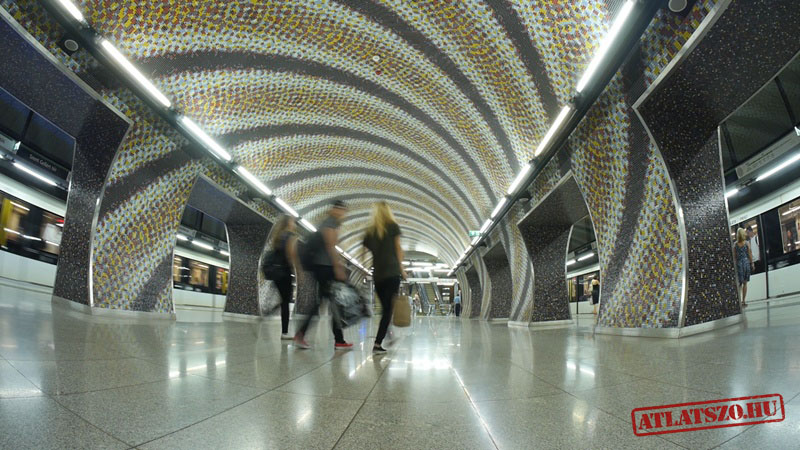The https://english.atlatszo.hu use cookies to track and profile customers such as action tags and pixel tracking on our website to assist our marketing. On our website we use technical, analytical, marketing and preference cookies. These are necessary for our site to work properly and to give us inforamation about how our site is used. See Cookies Policy
Hungary set to lose major sums from embattled metro venture
The report compiled by the European Anti Fraud Office reveals major shortcomings during the construction of the controversial M4 metro line in Budapest. As Atlatszo.hu found studying the document, major political figures in the past regime share the responsibility and due to the shortcomings, Hungary may have to pay back massive chunks of the funding it got from the European Union.

The European Anti Fraud Office, commonly known as OLAF, has recently completed a 104-page study about the suspicious dealings related to the M4 metro line in Budapest. The project is commonly seen as a study case for everything wrong with the Hungarian establishment. It was completed many years after deadline, way over budget and in a sense became obsolete by the time commuters could actually use it, since travel habits changed over the years.
The OLAF report paints a terrible picture, it cites a large number of anomalies and irregularities, some severe. They range from lack of professionalism to suspicious advisory contracts.
The project was overseen by DBR Metro, an entity directly created by the Budapest transport company BKV. OLAF noted that the company was unprepared for the task. Since there was no general contractor to coordinate the venture, BKV became directly liable for compensations due to the major delays in the implementation. Eventually, the general contracting duties were transferred to an advisor in the project, Eurometro. This led to a multitude of conflict of interest situations, since the company also applied for various jobs in the tender.
The project that has become the defining element of the time spent in office by former Budapest mayor Gabor Demszky can also be traced through advisory contracts to former socialist prime minister Peter Medgyessy.
Having reviewed the report, we identified four major issues that may prove crucial in whether Hungary is set to lose massive funding for sins of the past.
Germany’s Siemens was contracted for providing power-supply infrastructure and create the controlling system. Earlier inquires found that the firm was given insider information prior to tender applications, giving it an unfair advantage over competitors. A criminal investigation was launched in Hungary but yielded no results.
Alstom Transport delivered metro cars for the M4 as well as the M2 line. Alstom remained one of two bidders after six others were disqualified and it was also offered the opportunity to revise and lower its offer to secure the win. The OLAF report, as well as other coverage indicates Alstom was ultimately chosen the winner because it had valid advisory contracts with parties close to the governing elite of the time. A police investigation in the matter is currently under way.
BAMCO was tasked with boring and building the tunnels. The company was picked after another firm violated the tender rules by participating in two different consortia. BAMCO was then picked in a directly negotiated contract. OLAF objected to the absence of another open procedure.
Swietelsky was awarded the job of building the stations. The company allegedly was offered the option to learn the maximum amount it may bid if it wants to win if it was willing to pay 5% of the sum in „gratuity”. Since the testimony that served as the basis of the news has been revoked, it is unlikely that this particular matter will be investigated.
Your support matters
Atlatszo.hu is financed by nonpartisan and non-governmental sources; we do not accept money from state institutions, political parties and affiliates. We rely on support from readers. Donate here.
Share:
Your support matters. Your donation helps us to uncover the truth.
- PayPal
- Bank transfer
- Patreon
- Benevity
Support our work with a PayPal donation to the Átlátszónet Foundation! Thank you.
Support our work by bank transfer to the account of the Átlátszónet Foundation. Please add in the comments: “Donation”
Beneficiary: Átlátszónet Alapítvány, bank name and address: Raiffeisen Bank, H-1054 Budapest, Akadémia utca 6.
EUR: IBAN HU36 1201 1265 0142 5189 0040 0002
USD: IBAN HU36 1201 1265 0142 5189 0050 0009
HUF: IBAN HU78 1201 1265 0142 5189 0030 0005
SWIFT: UBRTHUHB
Be a follower on Patreon
Support us on Benevity!

